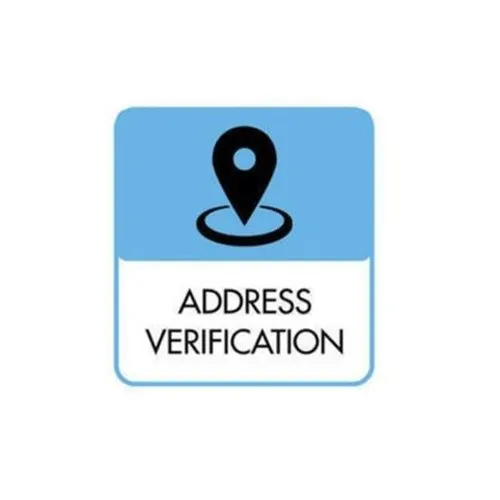According to Hubspot statistics, global enterprises lose $1.6 owing to their inability to fulfill verification criteria and achieve reliability. In this manner, they lose their consumers, which is quite important. One of the most prevalent scams in this respect is the use of forged addresses to conceal one’s identity. E-commerce, banking, healthcare, and retail are all vulnerable industries to these threats. Chargeback fraud and abandoned carts have faced a significant hit on digital platforms.
As a result, these businesses require digital identification & address verification for safe client onboarding. This technology refers to solutions that assist industries in authenticating address-based data and ensuring that they are dealing with real clients. They can even predict any suspected behavior while eliminating fraud, minimizing misdelivered items, and reducing chargebacks.
Address Verification – Which Industry Needs It Most?
An address verification system is necessary for every sector. Without it, businesses cannot offer their customers a better experience. It also helps all firms to minimize fraud-related issues. Below are the industries which urgently need this system:
- E-commerce Industry
Address-related fraud is especially common in the e-commerce business. Customers utilize forged addresses to conceal their identity while purchasing age-restricted items. This is why e-commerce platforms suffer the greatest financial losses, owing mostly to chargebacks and unsuccessful deliveries. Furthermore, scammers frequently use false information to circumvent the authentication procedure. As a result, digitally verifying an address not only identifies but also stops forgeries from occurring.
- Retail Industry
The retail business is primarily focused on obtaining worldwide clients in order to first increase its offerings and then achieve a large user base. To make this process simpler, the industry is implementing digital address verification technologies. Customers will not have to quit the procedure if they can speed it up. This is because they prefer a “one-select” option than a lengthy procedure.
- Banking and Finance Sector
The banking industry is the second most vulnerable to malicious activities. Criminals apply for benefits and insurance, create accounts, and conduct fraudulent activities using forged, disguised, or altered documents. As a result, the financial and banking sectors must guarantee that they are supporting and registering legitimate consumers. Otherwise, this business will be subjected to terrorism funding, bogus accounts, identity theft, and other unlawful activities. The verification of address services ensure the privacy and security of clients’ information while also avoiding harmful activities.
- Medicare Industry
The healthcare industry maintains as well as holds the most sensitive data, and if it is hacked, it will be difficult to safeguard the health information of patients across the globe. That is why the healthcare industry needs enhanced security services. This is due to the difficulty of manually maintaining and retrieving information. As a result, online address verification has become the healthcare industry’s best option for accurate and fast data collection.
The Advantages of Address Verification
Address verification has the following advantages:
- Guarantees Regulatory Compliance
The increase in online crime has significant effects on economies. Industries can identify clients’ identities and support only legitimate customers by validating addresses. This assures compliance with the authorities’ KYC/AML rules. This guarantees adherence to the KYC/AML regulations of the authorities.
Currently, largest gambling hub, the United States, has obliged borders to check their users’ addresses, similar to the banking industry. Platforms that use digital services can then apply verification checks and confirm the customers’ identities and location. Non-compliance will result in heavy penalties and, in severe situations, the full shutdown of business.
- Risk Detection and Prevention
E-commerce, finance, and lending sectors can satisfy customers’ identification claims. For example, during the lockdown, a company got a large number of complaints about bogus bookings. As a result, the platform suffered a large financial loss, casting doubt on its dependability. The platform consequently suffered a sizable financial loss, raising questions about its reliability.
Similarly, in the banking and financial sectors, scammers use forged identification documents in order to bypass the verification procedure. By applying online address verification, banking, finance, and other industries can not only assure KYC compliance but also take appropriate action against criminals.
Conclusion
Online address verification solutions assist organizations in verifying data from large customer bases. This allows them to speed up the process, prevent fraud, and maintain KYC & AML compliance. Furthermore, enterprises can save resources and time while maintaining their reliability.


